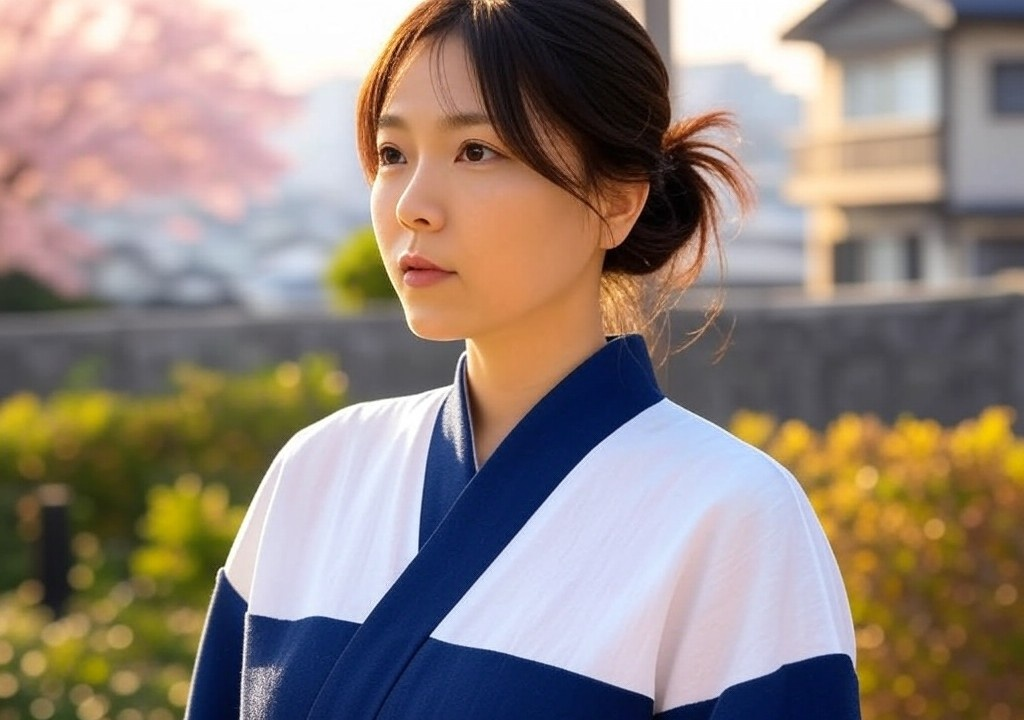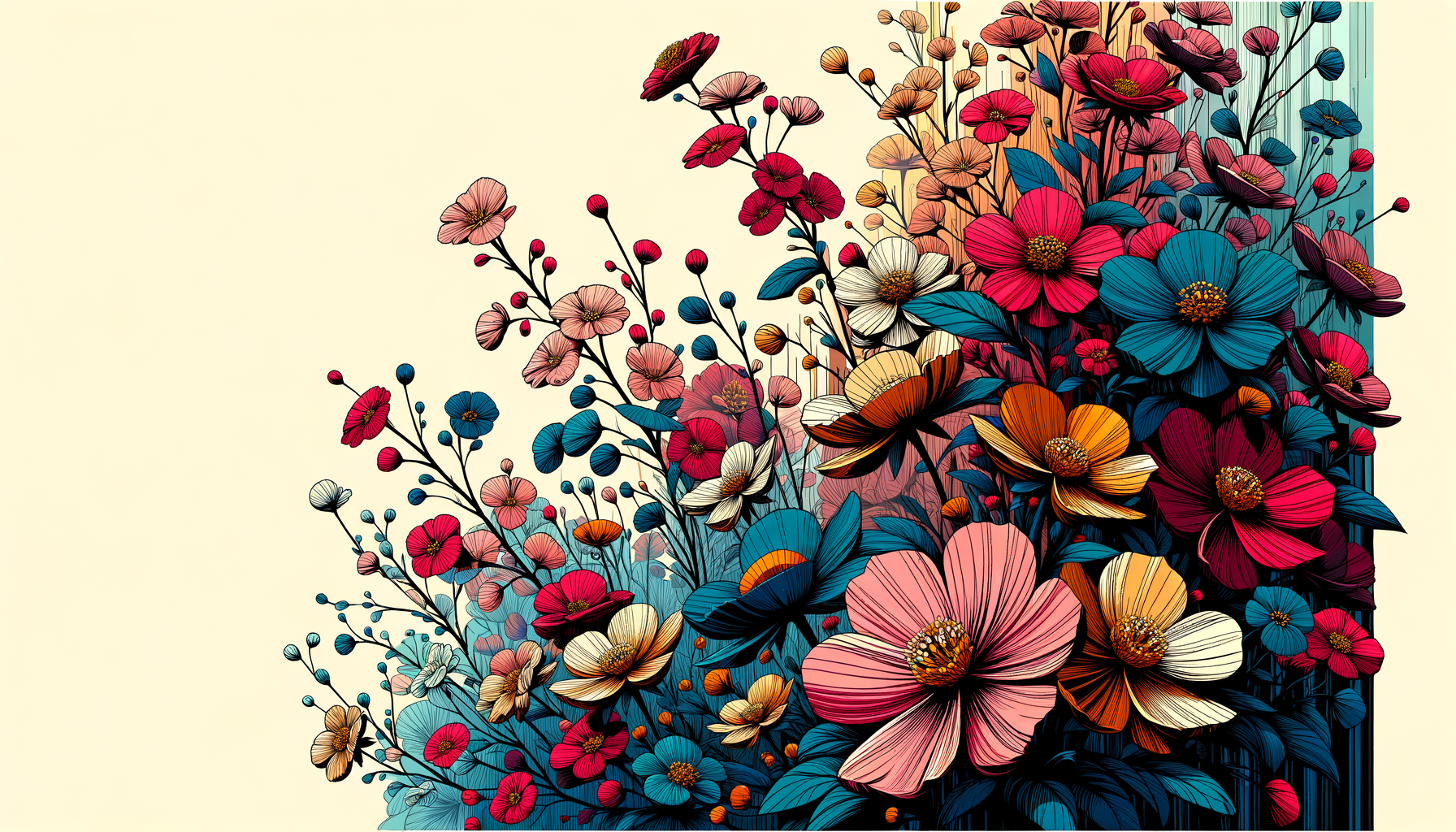How do you fall in love with something intangible? Better yet, how does it feel when that love changes the course of your life? For me, it started with a crush—not on a person, but on the idea of discovering beauty everywhere. And no, this isn’t some abstract, lofty declaration. Let me tell you how I found my passion for art, stories, and connection—and how it continues to shape everything I do today.
Love at First Sight (and First Sniff of Paint)
My earliest memories are filled with flowers. My mother’s hands were always busy in her flower shop, arranging peonies and lilies into works of art. While other children played tag outside, I sat cross-legged on the floor, mesmerized by her creations. Each arrangement was a fleeting world, a story that bloomed and faded in days.
Art—in its rawest, most natural forms—was everywhere in those childhood moments. My father, ever the professor, would smuggle me into his lectures, hoping I’d sit quietly while he spoke about samurai epics and woodblock prints. I did, but mostly because I was too fascinated to make a fuss. History, culture, and beauty felt like breath: essential, endless, and completely awe-inspiring. That’s when I knew—I didn’t just like art...I was infatuated with it.
Think of it as the honeymoon phase between yourself and your future goals. Those early glimpses can be intoxicating, like the first time someone replies to your text with more enthusiasm than you dared hope. Your passion woos you with its endless possibilities, and you begin to wonder, Can this last?
Spoiler: It can. But first, let me tell you how it matured.
The Awkward Dating Phase with Passion
Here’s the thing no one warns you about falling for your craft: sometimes, it doesn’t love you back immediately.
As a teenager, I started painting in our cramped kitchen. I’d make elaborate attempts at traditional sumi-e ink paintings and often missed the mark. Once, my father peered over my shoulder and said, “Your mountains look like turnips.” (Thanks, Dad.)
In those moments, it felt personal. How could something I adored not align with me? But passion, as it turns out, works the same way relationships do: there’s a lot of trial and error. You have to awkwardly stumble through incompatibility, learn its quirks, practice being patient, and most importantly, forgive yourself when things don’t immediately click.
Teenage me didn’t know this. Sinking hours into sketching failed proportions, reading ancient poetry I didn’t quite understand, and obsessing over how to make sense of it all—it sometimes felt like unrequited love. But what I eventually learned is that passion doesn’t always have to look perfect. It’s not about chasing endless validation or effortless compatibility. Instead, it’s about learning to show up, awkwardness and all.
So, if you’re in an “awkward phase” with your passion right now, don’t think of it as failure. It’s foreplay for something bigger, better, and long-lasting.
The Commitment Stage: Making Passion a Partner
After studying art history at the University of Tokyo, I was certain life had clearly figured itself out for me. I imagined myself gliding through museum halls in Paris or Tokyo, curating exhibits with highbrow explanations about color theory.
Cue reality check: I found myself in Vancouver, writing academic papers while fighting crippling imposter syndrome. My love affair with art started to feel more like the fatigued sigh of a long-term relationship. Did I still love what I did? Or was it the ghost of that honeymoon-phase glow keeping me around?
This is when I discovered the secret: to love something deeply yet sustainably, you need to expand it. For me, that expansion came through stories.
I started writing personal essays about art—works that moved me, artists who felt relatable, and the universal lessons hidden within their creations. One day, an older friend suggested I stop writing “for academia” and try something less intellectual. “Write the way you’d tell me a love story,” she said.
That little push was everything. Suddenly, my writing—which had felt like a 16th-century oil painting, heavy and laborious—transformed into something vibrant and alive. Penning essays (much like this one!) taught me that passions can evolve. What you love at 15 doesn’t have to look exactly the same at 30—it shouldn’t. Growth is necessary not only for your relationships but for how you engage with yourself and your craft.
My work now goes beyond dusty museum corners. Whether it’s about art, culture, or connection, sharing stories of beauty and humanity feels just as fulfilling as seeing the flowers in my mother’s shop bloom.
Rinse, Repeat, and Reignite
Loving your passion is like any enduring relationship; it requires effort. You won’t feel the spark every single day, just as you won’t want to snuggle with your partner every time they breathe louder than normal. (True love is surviving someone’s snoring.)
So, what do you do to keep the flame alive? Here’s what I’ve learned:
- Rediscover the playfulness. Is your passion feeling stale? Treat it like the early days of dating. Try new things, ask curious questions, and experiment outrageously—just because.
- Allow growth. Don’t box yourself—or your creativity—into rigid definitions. What you love can evolve without betraying its core.
- Step away when you need to. Relationships thrive on balance, not burnout. Step back without guilt. Trust me when I say: you’ll return better for it, with a deeper appreciation for why you fell in love in the first place.
Falling In Love, Over and Over Again
Today, passion looks different for me than it did as the girl sitting in her mother’s flower shop or mixing watercolors at 15. It’s broader, richer, and more textured. I’ve fallen in love over and over again—not always with art or writing itself, but with the process of growing alongside my craft.
I’ve come to realize that passion isn’t about hitting milestones or publishing masterpieces. It’s about letting yourself feel alive while fostering beauty for others too. Think of it as showing up for a love that consistently surprises you—like the partner who remembers the exact way you take your tea after twelve years or wakes you up at sunrise to surprise you with soft light on a quiet lake.
Because that’s what passion is: equal parts reliability and awe. And if you ask me, that’s a love I’ll happily invest in forever.




















